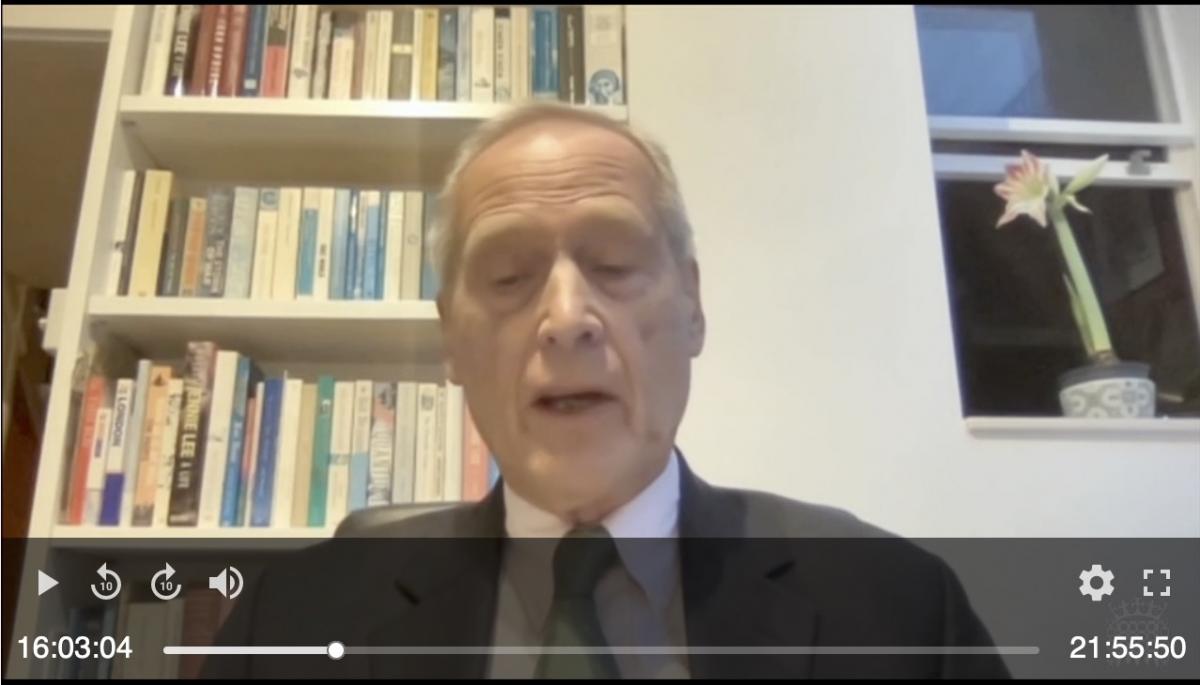
“The cultural and VCSE sectors have a key role to play in reducing health inequalities”
Lord Howarth has made a series of short speeches in the House of Lords on the inclusion of nonclinical practice - including in particular a focus on creativity/culture/nature - in the Health & Social Care Bill.
A video of the first speech, on 11 January 2022, is available here, and you can read the text here via Hansard.
"Non-clinical approaches can help us move away from the present state of affairs, in which we are under-doctored and over-medicated, and they will bring significant cost savings. The World Health Organization’s scoping review reported that evaluation of Arts on Prescription suggested an average return on investment of £2.30 for every £1 spent, through reductions in unnecessary prescribing and reductions in the use of health services, including emergency hospital admissions."
In his second speech on 11 January, Lord Howarth cites the examples of a number of organisations (and CHWA members) including Intermission Youth, Gloucestershire Artlift, UCLH Arts, and Air Arts at Derby and Burton Hospitals. The video is available here, and text here.
"Increasing numbers of ICS leaders are recognising how creative health approaches can valuably support the NHS. Let us make sure that, in framing this legislation, we guarantee appropriate opportunities for social prescribing and other non-clinical interventions to make the full contribution of which they are capable to benefiting both mental and physical health.
The department has commissioned research and funded the National Academy for Social Prescribing and the provision of 1,000 link workers. It is not clear, however, that the department, NHS England or the Office for Health Improvement and Disparities have fully grasped the potential of creative health or that they mean to normalise creative health approaches within their vision and policies. I look forward to the Minister’s assurance that the Government do indeed intend this and will design integrated care structures to this end."
Creativity and health equity
In a third speech, on 13 January, Lord Howarth focuses on the impacts of creative approaches on health equity. He refers to the 2017 Creative Health report as well as more recent evidence on creativity, health equity and social mobility via the MARCH Network, led by Dr Daisy Fancourt.
"The cultural and VCSE sectors have a key role to play in reducing health inequalities and should be fully embedded at systems level and in the health decision-making process. Integrated care partnerships provide the gateway to making this happen."
He also highlights the brilliant work of the Whitworth, Contact Manchester, Manchester Camerata, Sistema Scotland, and the Liverpool Philharmonic - as well as developments via the National Centre for Creative Health and AHRC-funded research programmes to tackle health inequalities. The video is here and text here.
Nonclinical practice in Integrated Care Boards
"I invite the Committee [...] to consider whether ICBs should be under a legislative duty to work in full partnership with non-clinical providers to gain the benefits they can offer for the health and well-being of individuals and communities. As the noble Lord, Lord Mawson, reminded us in an earlier debate: 'A human being is fundamentally a creative being.'"
On 19 January Lord Howarth tabled amendments to clause 20 of the Bill proposes a duty for Integrated Care Boards to embrace non-clinical practice (including creative and nature-based services and other services in the voluntary, community and social enterprise sector) in their whole way of working. Read the text here and watch the video here. He mentioned in particular Shropshire, Telford & Wrekin ICS, where the personalised care team is using creative health and co-production methods with children and young people; singing for breathing in Suffolk and North East Essex ICS; the work of Creative Minds in Yorkshire; the LENs; and creative training for clinicians at the University of Exeter, UCL and through Nicola Gill's work in York. His proposed amendments were supported by a number of peers after his speech, including Baroness Barker who said
"I sincerely hope that we do not pat these amendments on the head and send them on their usual way into the background and to the byways of primary care."
Work with unpaid carers
On 31 January, Lord Howarth spoke about unpaid carers, focusing on the work undertaken by the Kingston Carers Network, working with Rosetta Life to nurture carers' creativity - including via an international network involving carers in India and Rwanda. Watch the video here and read the text here.
Lord Howarth of Newport is President of the Culture, Health & Wellbeing Alliance and Chair of our partners the National Centre for Creative Health.

